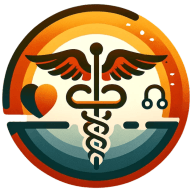How Do You Stay Current With Medical Research?
In the fast-evolving field of medicine, staying abreast of the latest research is crucial. We've gathered insights from six healthcare professionals, including Medical Directors and a Physician Assistant, on methods they've employed to keep up-to-date with medical research. From employing a four-step approach to allocating weekly hours for research, these professionals share their strategies for staying informed.
- Four-Step Approach to Current Research
- Sign Up for Email Alerts
- Collaborative Article Discussions
- Scrutinize Sources and Impact Factors
- Subscribe to Leading Medical Journals
- Allocate Weekly Hours for Research
Four-Step Approach to Current Research
There is not 'one method'... In order to stay current with medical research, four basic steps are required:
1. Subscribe to key journals in your field. Set alerts to make sure that you are receiving updates on current publications.
2. Read and download articles and save them in a Google Drive for future reference. This is your portable, custom research encyclopedia! Share these articles liberally!
3. Get a LinkedIn account and follow leaders in your field from around the world. Regularly read/post and download any links to scholarly articles or interesting clinical posts from your peers on LinkedIn from within and from outside of your field of interest. Message the authors of the articles if you have questions! They may actually respond!
4. Regularly attend scientific meetings in your field of expertise. There is no substitute for in-person discussions that can only take place in such settings.
Sign Up for Email Alerts
It's definitely a challenge to stay current with research, so one of the best methods I've found is to sign up for email alerts. Several of the big journals will send you a regular email with their latest articles; you can then scan these to see which ones are relevant to you. Medscape alerts are also a good way of keeping up-to-date, as you can set preferences to your clinical interests.

Collaborative Article Discussions
Staying abreast of advancements in plastic surgery is crucial for my practice, especially alongside my wife, Brittony. We regularly delve into articles from 'Plastic and Reconstructive Surgery' magazine and related publications, discussing how new findings and techniques can enhance our approach to upcoming cases. Our discussions often revolve around strategies for complications management, sharing insights on mitigating risks and optimizing patient outcomes. We're also enthusiastic about exploring new technologies shaping our field, exchanging perspectives on innovative tools and procedures that could benefit our patients. This collaborative approach not only enriches our professional growth but also strengthens our commitment to delivering exceptional care through informed decision-making.

Scrutinize Sources and Impact Factors
Staying informed requires a discerning eye. If you try to keep up with every bit of emerging research, you'll burn out easily. There is simply too much going on.
And unfortunately, it's often the flashiest news that gets promoted, regardless of value. Anything that mentions a "cure" is likely to be shared, even if the research behind it is dodgy and poorly defined.
So, when I see an interesting headline or article, I first scroll to the bottom to check the source. If it's from a well-regarded journal with a high impact factor, I scroll back up. If it's from a periodical I've never heard of, I'm more likely to hit the back button and wait for the study to be replicated by another researcher.

Subscribe to Leading Medical Journals
One effective method I've employed to stay current with medical research is subscribing to and regularly reviewing leading medical journals and publications in my field. Journals such as The New England Journal of Medicine, The Lancet, and JAMA provide the latest research findings and reviews. Additionally, I participate in professional networks and attend medical conferences and webinars, which offer valuable opportunities for learning and discussing the latest advancements with peers and experts. This multifaceted approach ensures I remain informed and can integrate the most recent evidence-based practices into patient care.

Allocate Weekly Hours for Research
I stay abreast of the latest research in medicine to ensure that the care provided is informed by research. I do this by allocating certain hours each week to read through current research, medical journals, and to watch webinars and online courses related to Lifestyle and Functional Medicine. This disciplined approach guarantees constant interaction with new medical findings and treatments.
Also, I engage with technology by following important medical journals and using research notification services that provide the most relevant research findings. These tools assist in sorting the large amount of information that is available in a way that is feasible and useful.



